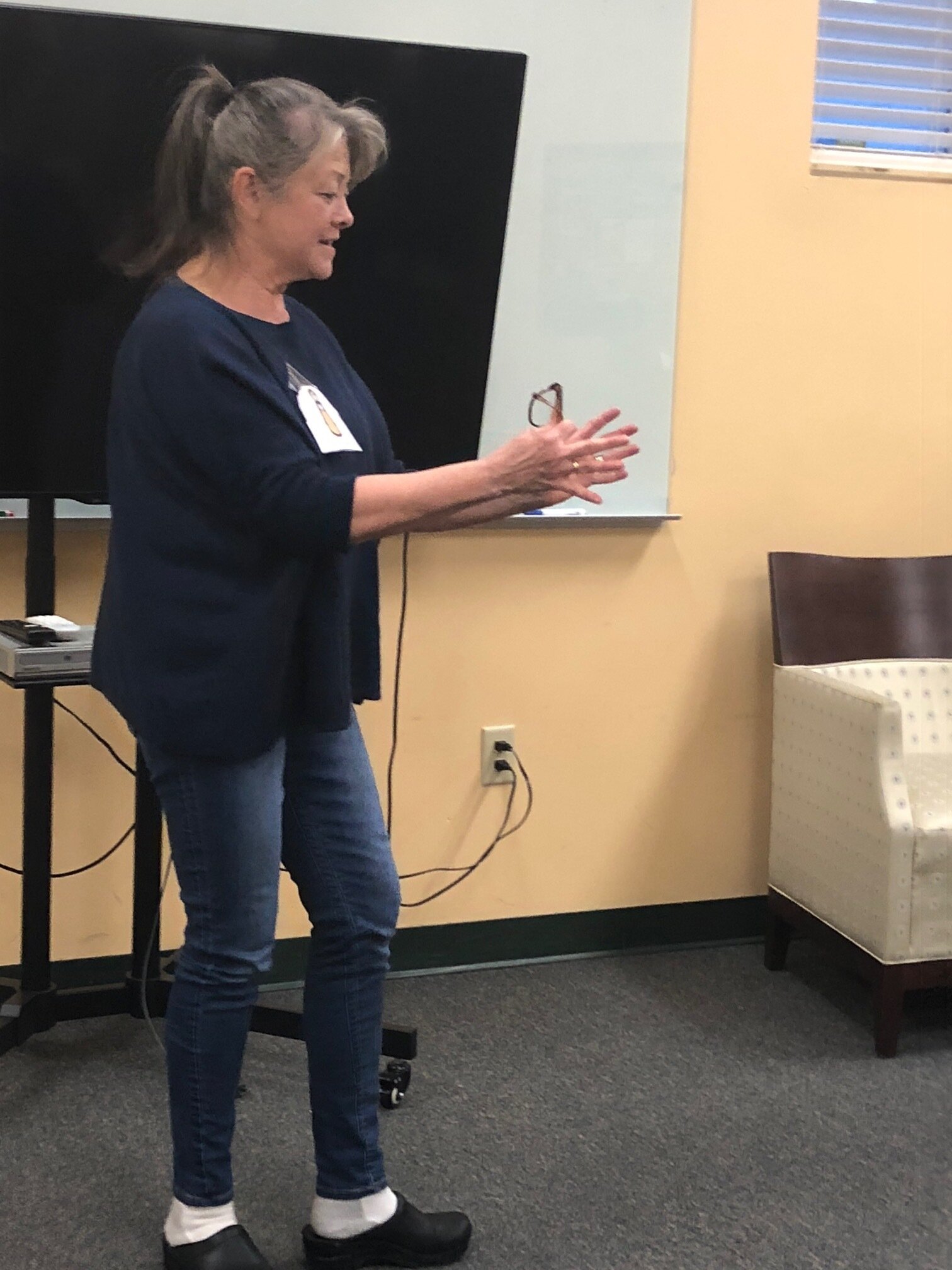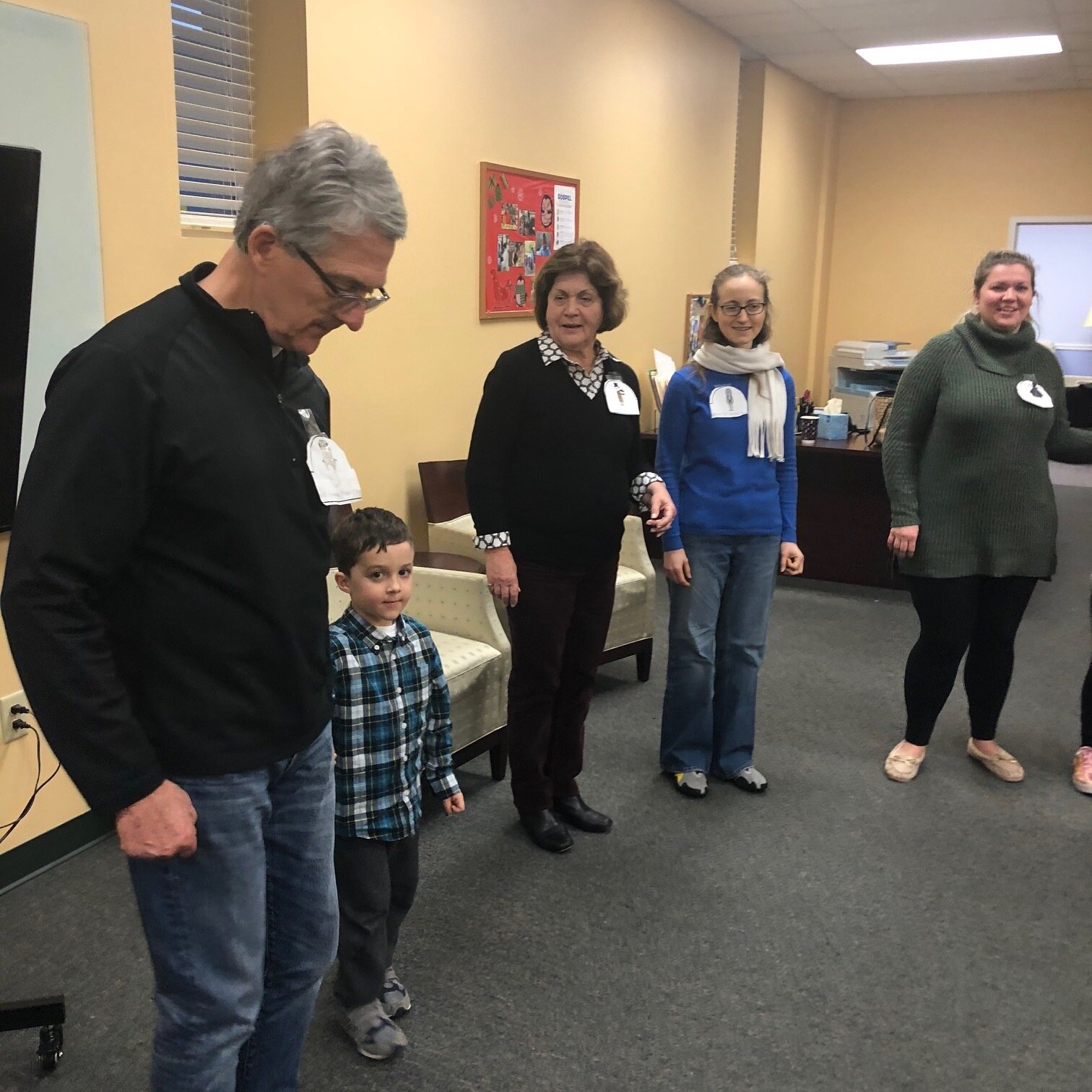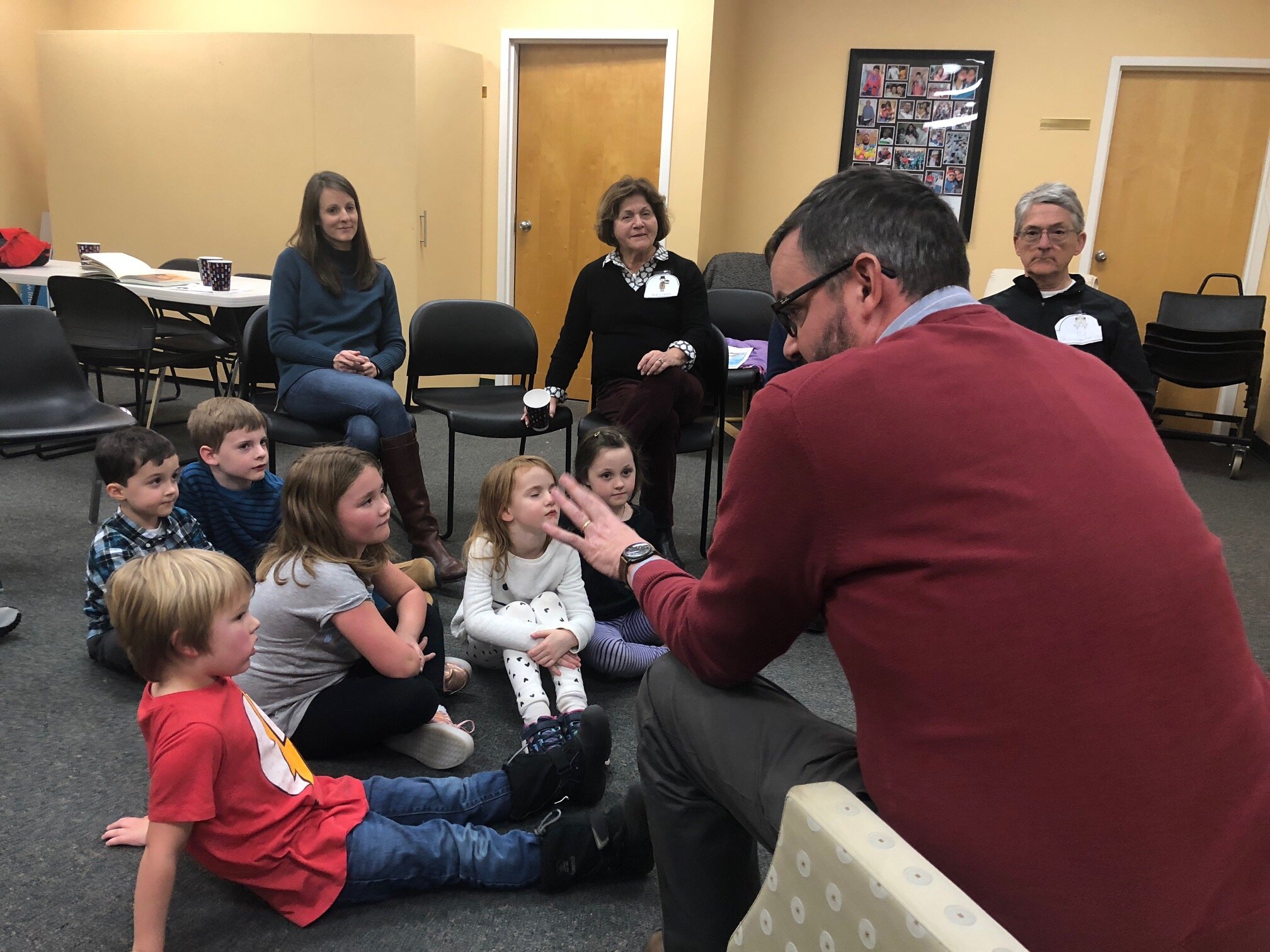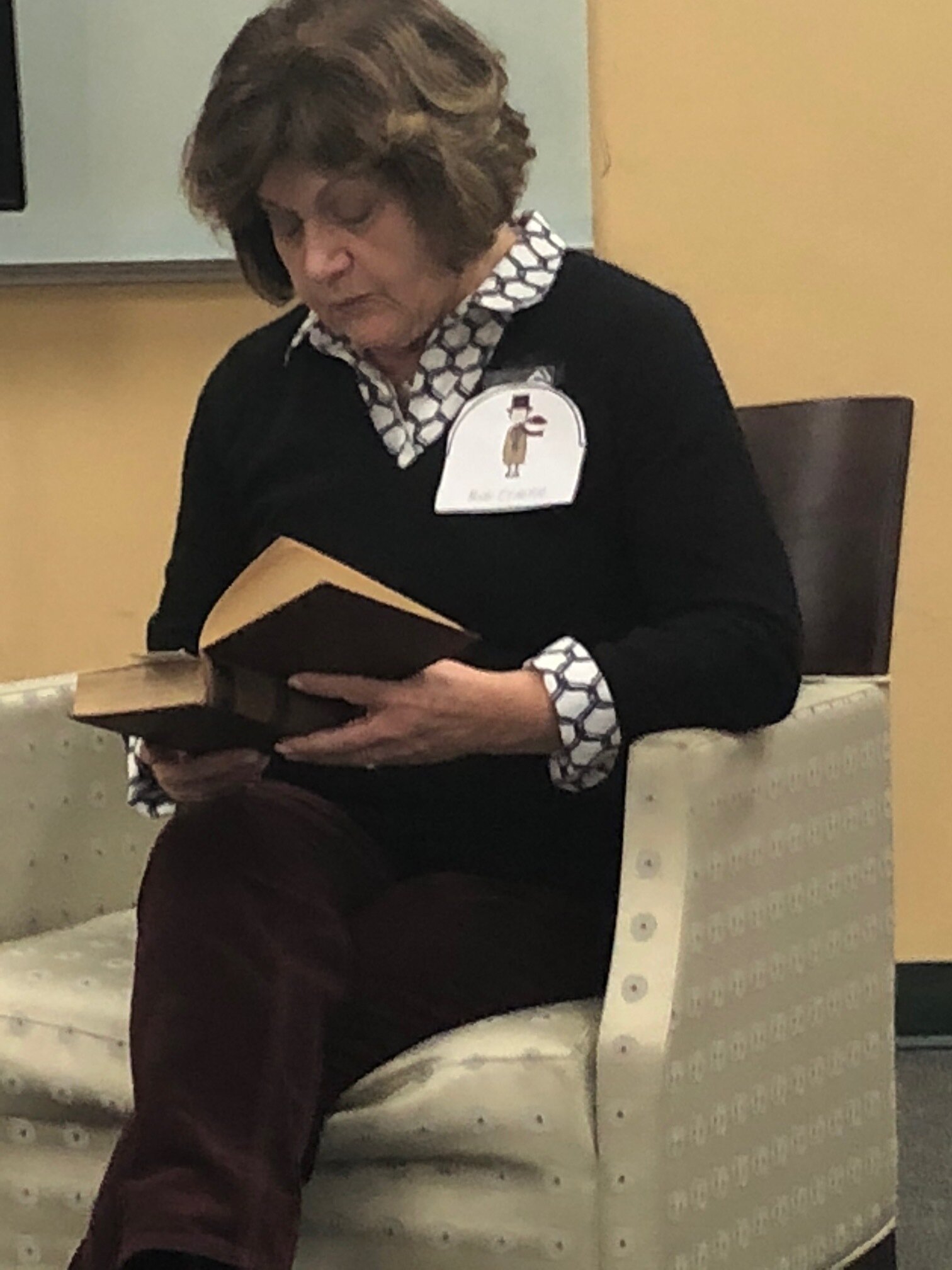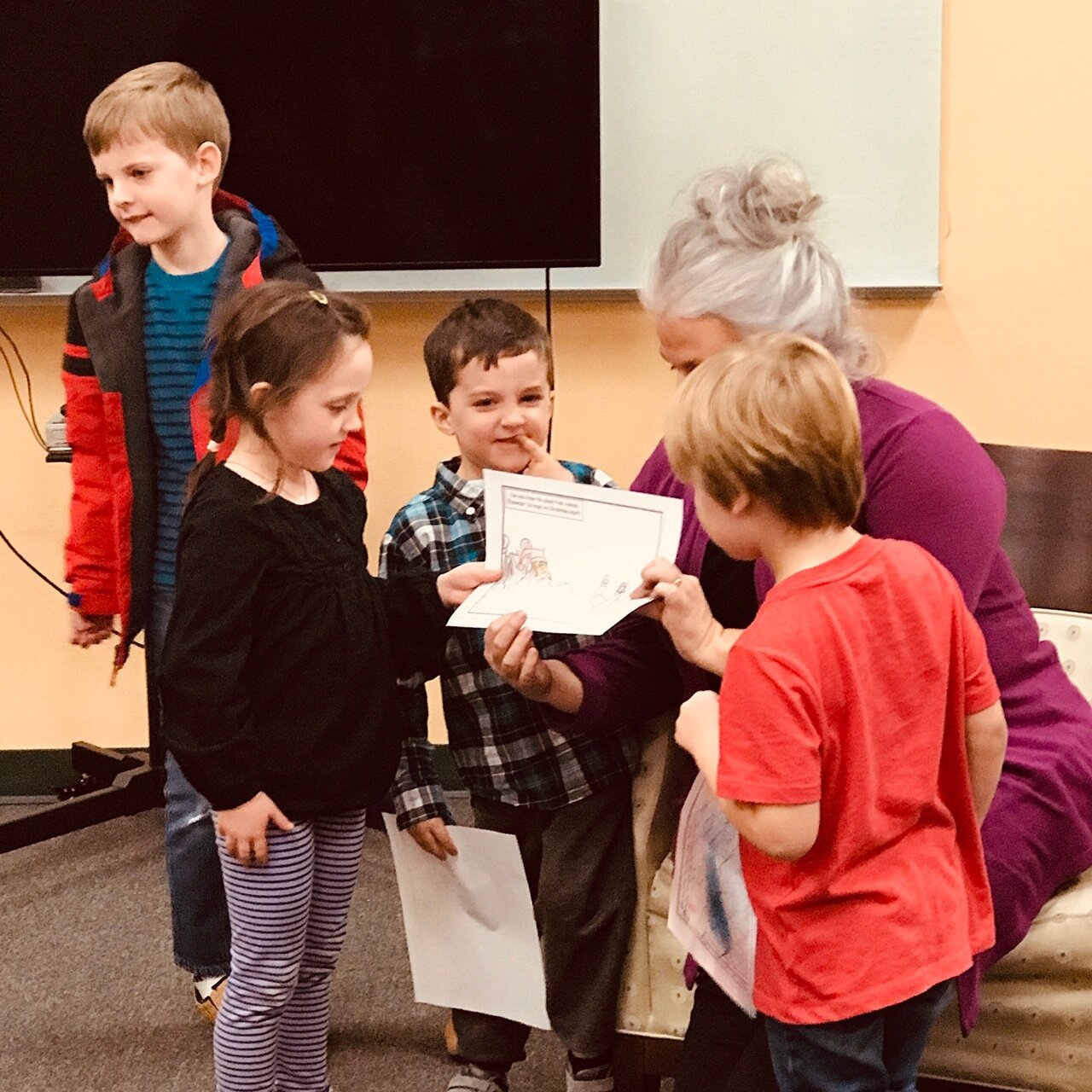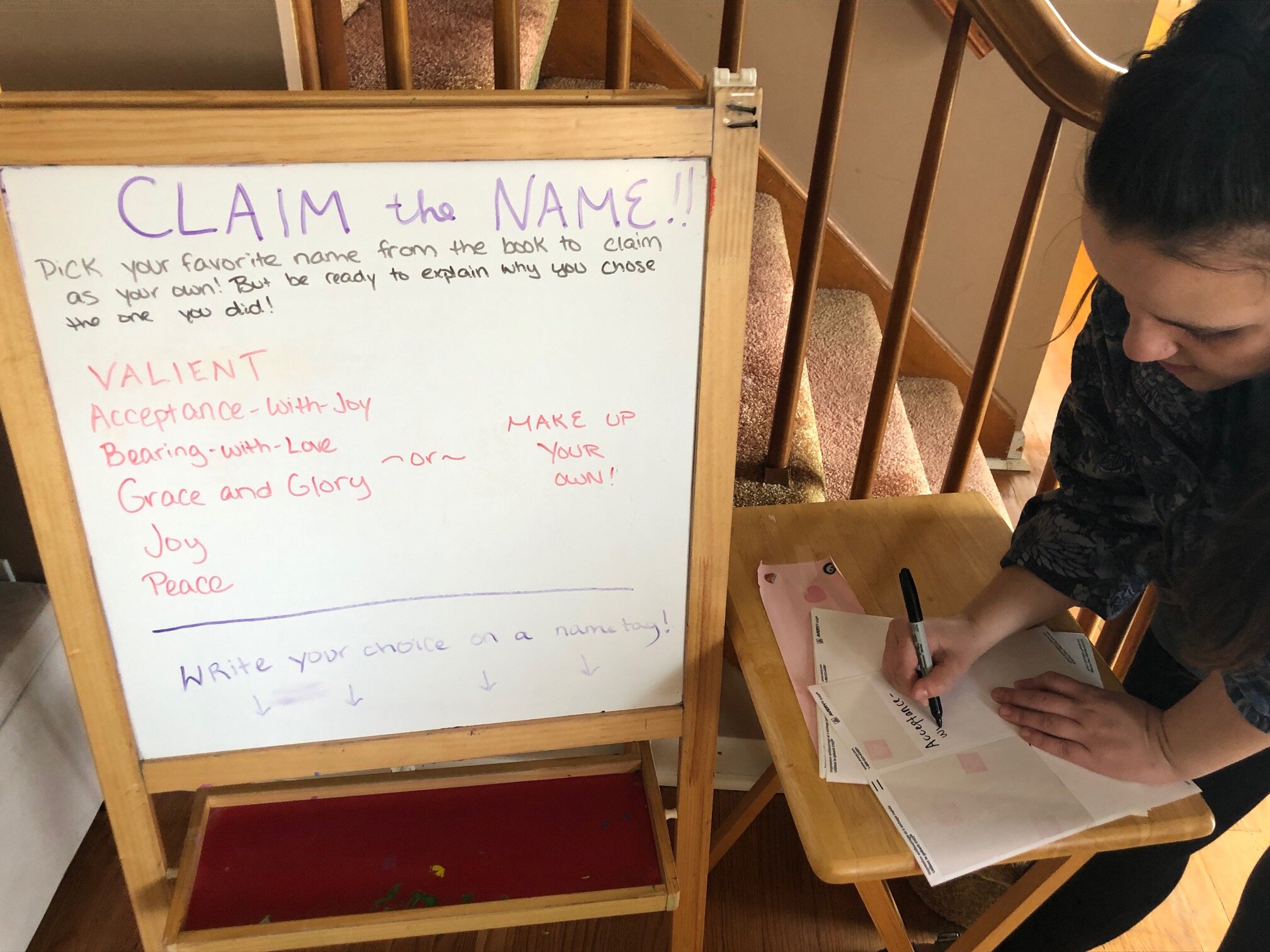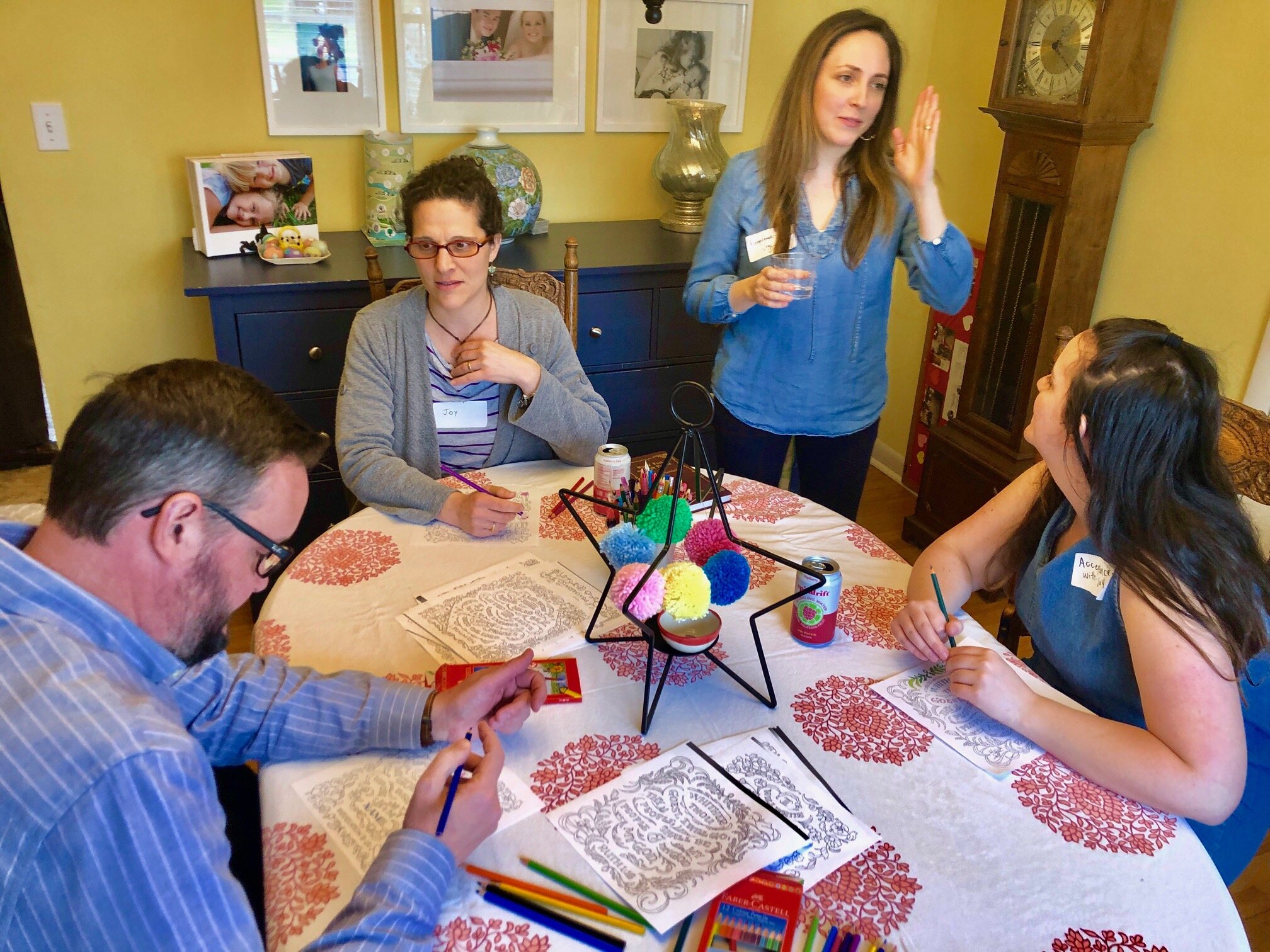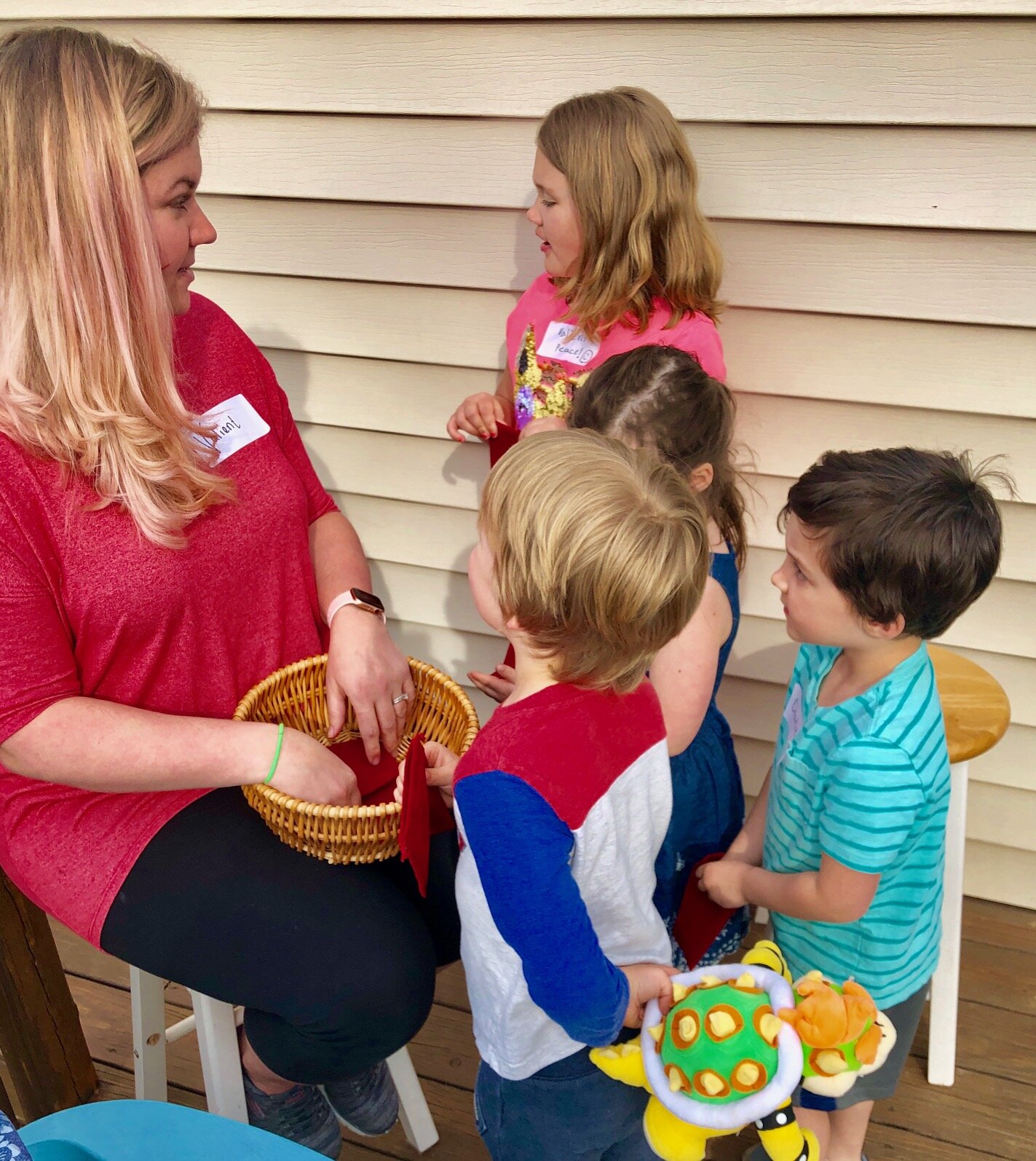7 Literary Books Our Church Read Together in 2019 [Apostles Reads]
In 2016, when I read the wonderful Reading for the Common Good: How Books Help Our Neighborhoods and Churches Flourish by C. Christopher Smith, I was at the same time preparing to move to a new state and minister within a new church family. Brian and I felt strongly that our role as the new Rector and wife needed to be first as guests in a place that, while new to us, was a community where, within and without Church of the Apostles, Christ's kingdom was alive and active. We wanted to enter with an appropriate curiosity to the stories of life, love, and loss in southwest Connecticut. At the same time, we knew we'd need to cultivate conversations that would help us find kindred spirits. It's this sort of solution that Reading for the Common Good helped me imagine. While reading and discussing a wide range of excellent books wasn't the only way I began to build relationships in Fairfield County, it certainly was one of the most delightful.
My husband gets a lot of credit for trusting my idea (as he's done so many times in the last 29+ years). From the broad idea for churches to read good books together generated in Reading for the Common Good, I customized the details to fit our needs and context. For one thing, we've added a liturgical slant - reading one book per liturgical season informed by the broad themes of each season. Our very first book to read together for Advent 2016, we read Shusaku Endo's Silence (which prompted a somewhat unintentional group initiation!) and then swung to the verbose and jubilant essays and poems of G. K. Chesterton for Christmastide. That's a kind of intellectual athleticism (and maybe gracious response to the new Rector's wife) only the most open-minded readers embrace.
Another bonus has been getting to know each other better. On more than one occasion I've been astonished to hear the bits and pieces of life stories that intersect with our book themes - like the lovely woman who mentioned in a sort of "oh by the way" comment during last Lent’s discussion of MLK's Where Do We Go From Here: Chaos or Community? that she'd worked for the LBJ administration and witnessed first-hand the Poor People's March on Washington the same year as the assassination of Dr. King; another shared privately about protesting with the pacifist priest Daniel Berrigan. I'll admit to a bit of jaw-dropping since both of those scenarios are a long way from the conservative church circles in an area that includes some of the nation's top-earning zip codes.
I'm happy to look back on our second year reading together and see that the Apostles Reads group has been up to the challenge. From the true and devastating accounts of one lawyer’s campaign to free the wrongfully imprisoned in Just Mercy to the bittersweet fictional tale of a lonely college rad roaming the streets of Chicago with a basketball and a fantastical pet dog in Chicago to the relentlessly shocking characters in Flannery O’Connor’s deep South and more, this little reading community has responded to each title with grace, humility, empathy, and intellectual curiosity. I’m honored to be among them.
In case you’re curious, here are the general guidelines we follow in selecting the book titles:
Many of our titles will be selected from what's widely understood as classic books or authors, whether that's in a technical or colloquial sense.
Many of our titles will be selected from books and authors that have been awarded for their literary merit within the larger publishing arena.
While we love new books and encourage each other to be aware of good books that have been newly released, for the sake of growing in our understanding of the context in which we live, worship, and work we'll veer toward older, established works rather than newer releases.
All of our books will acknowledge the reality of common grace, most will carry implicit theological themes, a couple will be based on explicit theological themes.
We value all genres of literature and will work toward including a noticeable variety of fiction, nonfiction, poetry, short story, biography, and essays each year.
We value reading outside of our tradition as a form of hospitality toward people, places, and customs different than our own experience.
We value literacy for all ages and will, once or twice a year, read something that is suitable for all ages.
I thought you might enjoy seeing the titles we chose and a few notes from our discussions. I'd also love to hear any suggestions you have for our future reading.
Advent & Christmastide - A Christmas Carol by Charles Dickens
Amazon | IndieBound | Hearts & Minds Booksellers
I have a book confession: I’d never read a single one of Dickens' novels, including the classic-of-all-Christmas classics, A Christmas Carol. What better time to repent of my reading transgressions than the start of our third year reading together as Apostles Reads?
Further confessions: Even though I'd never read the actual book, I own several copies. I also watch several versions of the various film adaptations every December. While I'm on a confession roll, Kermit the Frog is my favorite Bob Cratchit!
During Advent, we pay attention to the longing for the arrival of one who will rescue us from all that's broken and dark in this world. At Christmas, we feast for twelve days, celebrating the reality that One did arrive and will surely come again. A Christmas Carol weaves those themes together in the memorable setting of mid-nineteenth-century England, and manages to feel like it could’ve been written just as easily today.
We opened this book discussion to all ages with a “guess your character” game, a movie clip, a reading, and a folk dance (contra dance steps) like Mr. Fezziwig’s Christmas party. God blessed us, every one!
Epiphany -Walking On Water: Reflections on Faith and Art
By Madeleine L’Engle (Convergent Books, 2016. 224 pages)
Amazon | IndieBound | Hearts & Minds Booksellers
This book is considered a classic for the past couple of decades by many of the leaders and artists helping the church understand the interdependent roles of faith and art. In the season of Epiphany, we consider the ways God reveals His image through the incarnate Christ and reveals Himself to us through the stuff of earth: water, wine, and so much more. This book will encourage those who want to grow as artists and makers, and for the rest of us who want to grow in our appreciation for all the ways God continues to reveal Himself to us today.
Our discussion was thoughtful - vulnerable, even. We left encouraged to continue to feed the lake in making cosmos from chaos with our Creator. We committed to obey the work of making and honor those who do.
Lent - Hinds’ Feet On High Places: An Engaging Visual Journey
By Hannah Hurnard, Illustrated By Jill de Haan and Rachel McNaughton (Tyndale House Publishers, 2017. 160 pages)
Amazon | IndieBound | Hearts & Minds Booksellers
Hannah Hurnard's timeless allegory dramatizes the yearning of God's children to be led to new heights of love, joy, and victory. In this moving tale, follow Much-Afraid on her spiritual journey as she overcomes many dangers and mounts at last to the High Places. There she gains a new name and is transformed by her union with the loving Shepherd. I was delighted that we could move from Madeleine L'Engle's challenge to live in obedience to a life of making straight into this journey with Much-Afraid. How fitting!
Readers of all ages enjoyed reading about Much-Afraid's journey to becoming Grace and Glory. We gathered on an early spring afternoon to discuss the book and enjoy activities like coloring printables from the illustrated book, and picking new names for each other. Our children’s ministry director led the kids on a backyard walk for memorial “stones” that were exchanged for colorful jewels. There’s nothing like entering into a good book through the imagination of a child! ,
Eastertide - The Weight of Glory
By C.S. Lewis
Amazon | IndieBound | Hearts & Minds Booksellers
Up until this year, I'd only sampled some of the shimmering excerpts of C.S. Lewis’ collection of sermons but never read the whole thing. Here's the publisher's summary: "The classic [written by] the most important Christian writer of the 20th century, contains nine sermons delivered by Lewis during World War Two. The nine addresses in Weight of Glory offer guidance, inspiration, and a compassionate apologetic for the Christian faith during a time of great doubt."
Brian and I had to step out of the Apostles Reads book discussion for the next couple of books as we stepped into an intensive season of caring for a family member’s health crisis. I’m glad that we were able to read along with our friends even when we couldn’t be with them for the discussion.
Pentecost - One Blood: Parting Words to the Church on Race and Love
By John M. Perkins (Moody Publishers, 2018. 208 pages)
Amazon | IndieBound | Hearts & Minds Booksellers
Micro Review: A member of our reading group recommended this excellent farewell book from the inimitable, 87-year-old John Perkins. We chose to read it during Pentecost as a reminder that Christ’s Body is one body, one race, one blood, and one baptism. We have so much to learn from those like Perkins who’ve given their entire lives to the reconciliation of the mistreated and ignored members of the Church.
Brian and I read this out loud to each other and appreciated the simple but profound wisdom from Dr. Perkins as well as the case studies of churches around the United States working toward desegregating the Church. May the life and work of John and Vera Mae Perkins multiply throughout the next generation of peacemakers and Gospel preachers.
We weren’t able to attend this discussion either, but you can read a review written by our friend Walter on his blog, chainsgone.com.
Ordinary Time (Summer) - The Brothers Karamazov
By Fyodor Dostoevsky
Amazon | IndieBound | Hearts & Minds Booksellers
Here’s how our friend and reading group member, Walter, introduced the book discussion:
“The Brothers Karamazov is a massive book full of talking points, dynamic characters, contemporary themes, deep Christian insights and questions, story lines, redemptions, tragedies, love, hate, etc. How does one come up with an outline for a 2 hour discussion? We should discuss this for a year. I love Dostoevsky's writing, confused characters (just like us), changing people, struggles, suffering, joy, class struggles, humaness, political, religious, cultural debates, etc. Yada, yada, yada. So I gave it a shot. I haven't had much time so this is thrown together but it will have to do.”
Full disclosure: I did a terrible job of reading this. It was a hard summer and I didn’t have the resilience to remain present to this book. That didn’t stop the intrepid Apostles Readers! As usual, they all knocked my socks off with their robust reading and conversation. I may never make it through the book, but I’ll never forget Dostoevsky through the wise, compassionate and curious insights and reading experience of my friends.
Ordinary Time (Autumn) - Half the Sky: Turning Oppression Into Opportunity For Women Worldwide
By Nicholas D. Kristof and Sheryl WuDunn (Vintage, 2010. 320 pages)
Amazon | IndieBound | Hearts & Minds Booksellers
One of our group members suggested this book with the caution that it would be a difficult but “life-changing” reading experience. Our church has been leaning into prayer and action against human trafficking in Connecticut and felt this book would help ground us in some data-driven as well as the anecdotal research Nicholas D. Kristof and Sheryl WuDunn bring to this groundbreaking book.
It was at times a brutal read. Somehow the authors manage to give specific descriptions of atrocities committed against women and children (and men as well) around the world and we still came away with hope for the work that is being done. Since the authors aren’t (as far as I know) persons of faith, I was pleased how often they included details of Christian mission work as an asset in freeing, healing, and protecting the most vulnerable citizens across the globe. While there were a few recommendations the authors made for Western involvement in bringing aid that concerned me in light of what’s been coined “white savior complex”, I still would recommend this book for its scope and scale.
Since the U.S. headquarters for Save the Children International is based in Fairfield, we were able to invite one of their staff (a friend of one of our members) to share some of his experience with international aid and education. I'm amazed that a book full of so much atrocity (can foster conversations full of so much hope. May we continue to grow in our capacity to listen not only to the stories we read but also to each other in the conversations we share.
Here's the list of books we've read so far this liturgical year, and the ones we're (tentatively) planning to read for 2020.
All Year - Moments & Days: How Our Holy Celebrations Shape Our Faith by Michelle Van Loon
Advent - Joshua by Joseph Girzone
Christmastide - “Journey of the Magi” by T.S. Eliot
Epiphany - Teaching A Stone To Talk: Expeditions and Encounters by Annie Dillard
Lent - The Hobbit by J.R.R. Tolkien
Eastertide - The Sabbath by Abraham Joshua Heschel
Pentecost - Half the Church: Recapturing God’s Global Vision for Women by Carolyn Custis James
Ordinary Time (summer) - Cry, the Beloved Country by Alan Paton
Ordinary Time (autumn) - Unsettling Truths: The Ongoing, Dehumanizing Legacy of the Doctrine of Discovery Paperback by Mark Charles and Soong-Chan Rah
2021
Advent - Peace Like A River: A Novel by Leif Enger
Christmastide - Light Upon Light: A Literary Guide to Prayer for Advent, Christmas, and Epiphany by Sarah Arthur
Any suggestions? Also, if you could invite your church to join you in reading one book for this year (with the above criteria), what would YOU choose?
p.s. This post contains affiliate links because I'm trying to be a good steward, and when you buy something through one of these links you don't pay more money, but in some magical twist of capitalism we get a little pocket change. Thanks!


